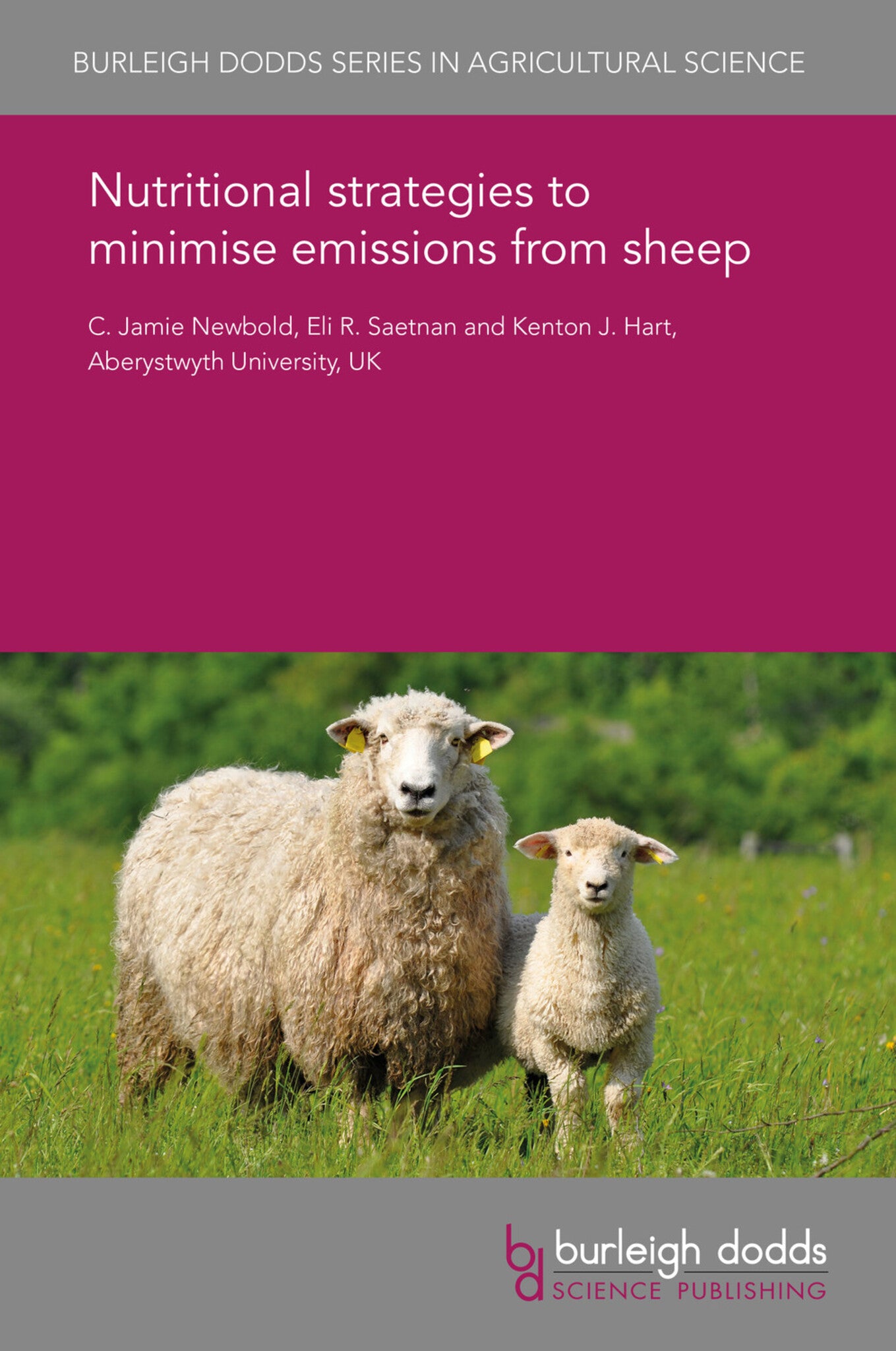We're sorry. An error has occurred
Please cancel or retry.
Nutritional strategies to minimize emissions from sheep
Regular price
£25.00
Sale price
£25.00
Regular price
£25.00
Unit price
/
per
Sale
Sold out
Re-stocking soon
Agricultural production accounts for 10–12% of global annual greenhouse gas emissions, with livestock production (including sheep) being the most important contributing factor within this sector. T...
Read More

Some error occured while loading the Quick View. Please close the Quick View and try reloading the page.
Couldn't load pickup availability
- Format:
-
25 September 2017

Agricultural production accounts for 10–12% of global annual greenhouse gas emissions, with livestock production (including sheep) being the most important contributing factor within this sector. The largest single contributor to agricultural greenhouse gas emissions is methane produced during enteric fermentation. This chapter describes the various approaches available to minimizing enteric emissions from sheep, including plant-based approaches and the use of additives in grazing sheep. The chapter also examines host-driven effects on the rumen and suggests future lines of development and research in this area.

Price: £25.00
Publisher: Burleigh Dodds Science Publishing
Imprint: Burleigh Dodds Science Publishing
Series: Burleigh Dodds Series in Agricultural Science
Publication Date:
25 September 2017
ISBN: 9781838792770
Format: eBook
BISACs:
TECHNOLOGY & ENGINEERING / Agriculture / Sustainable Agriculture, Animal husbandry, TECHNOLOGY & ENGINEERING / Agriculture / Animal Husbandry, Sustainable agriculture

1 Introduction 2 Plant-based approaches 3 Use of additives in grazing animals 4 Host-driven effects on the rumen 5 Conclusion and future trends 6 Where to look for further information 7 References



